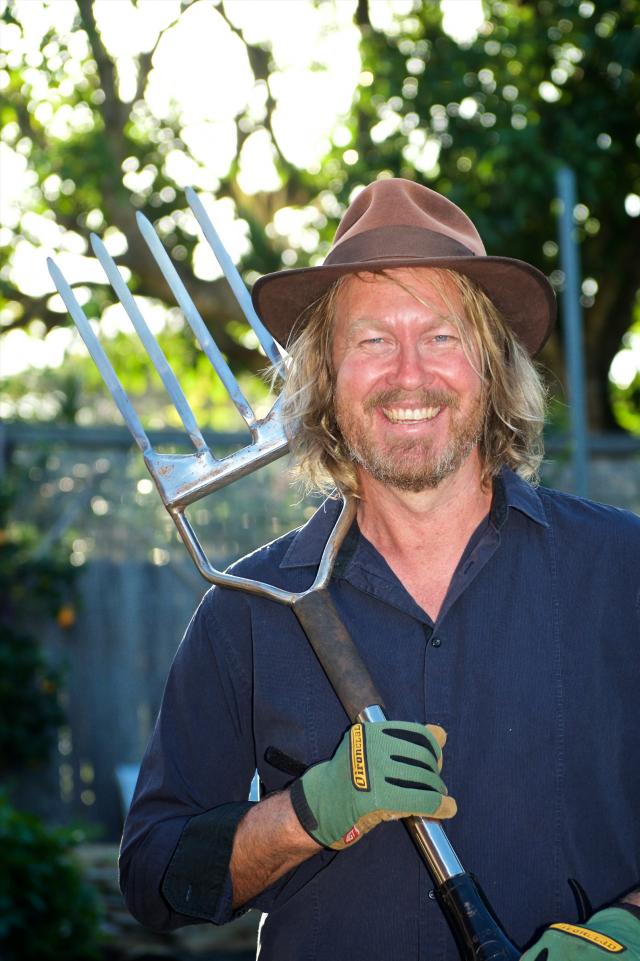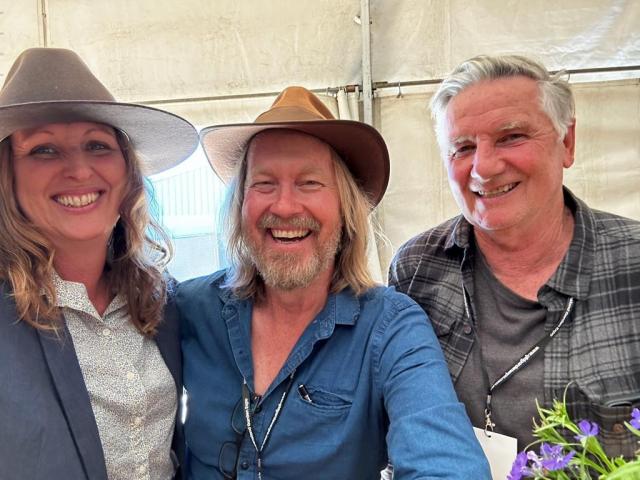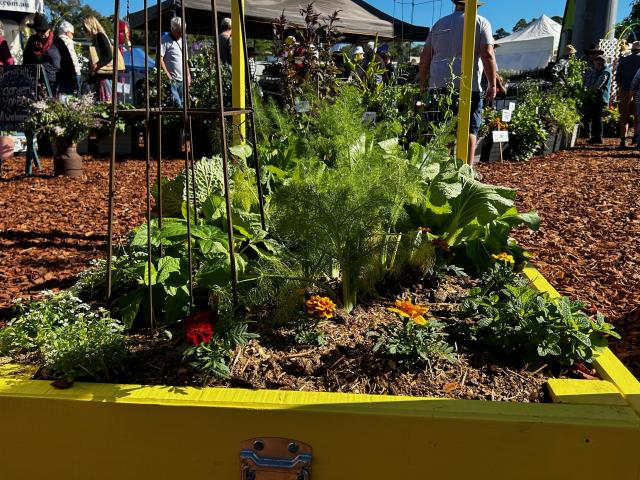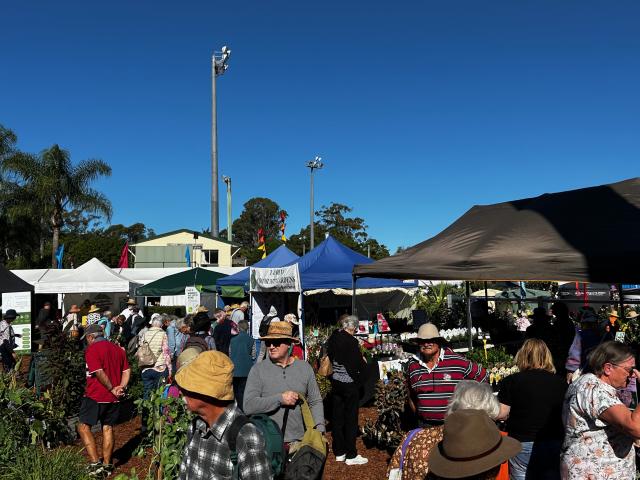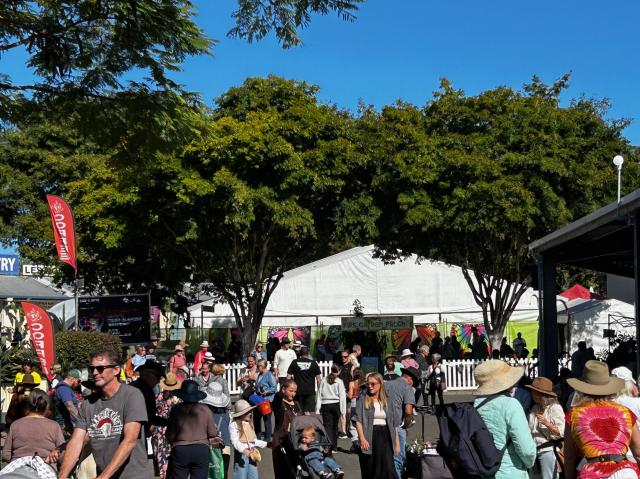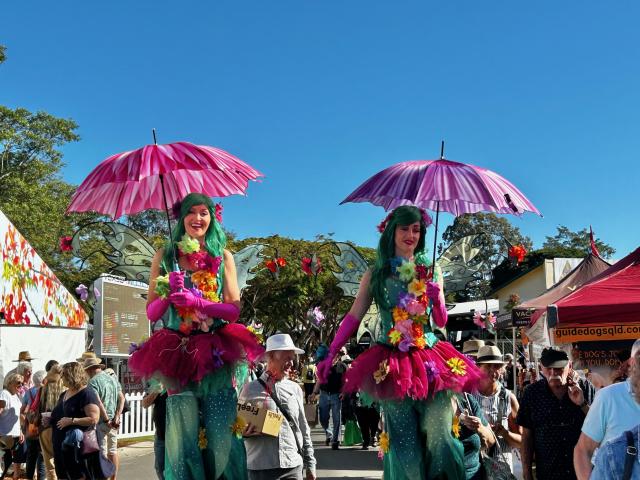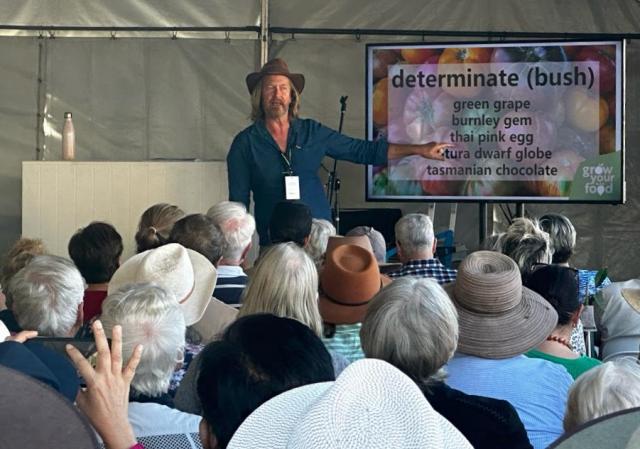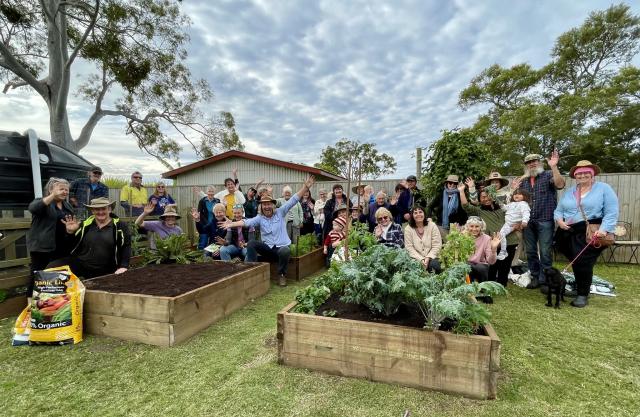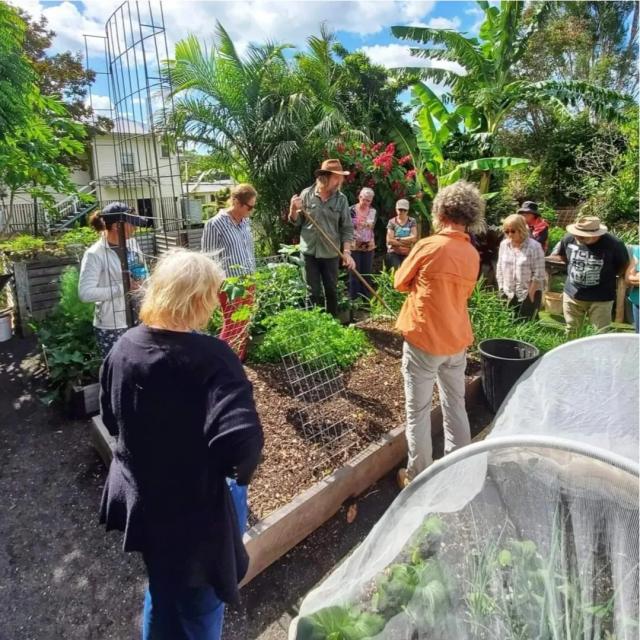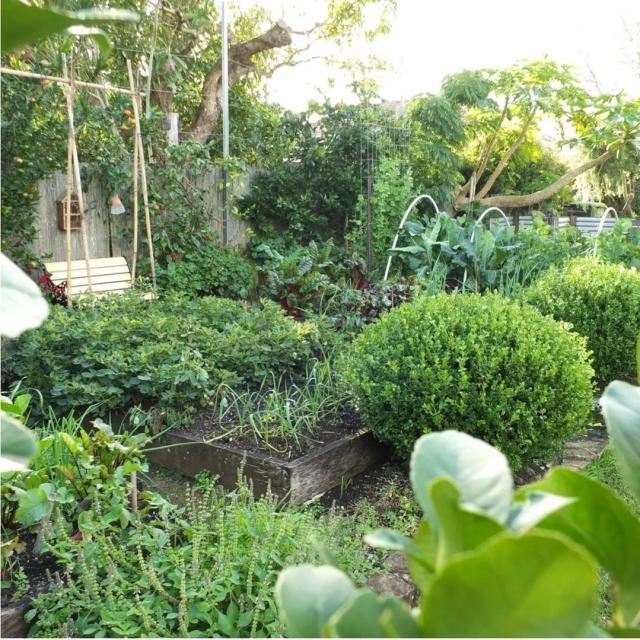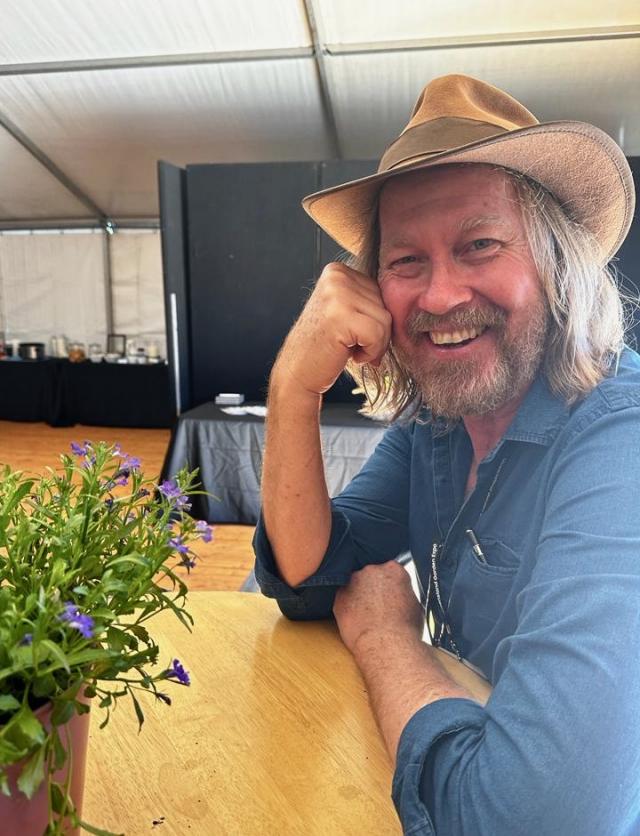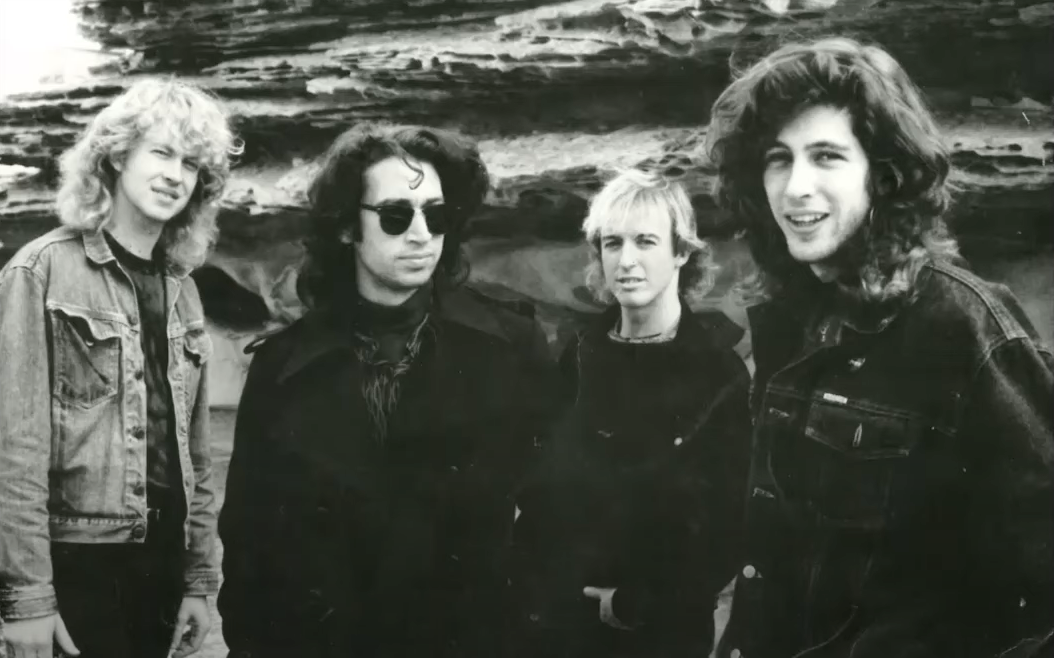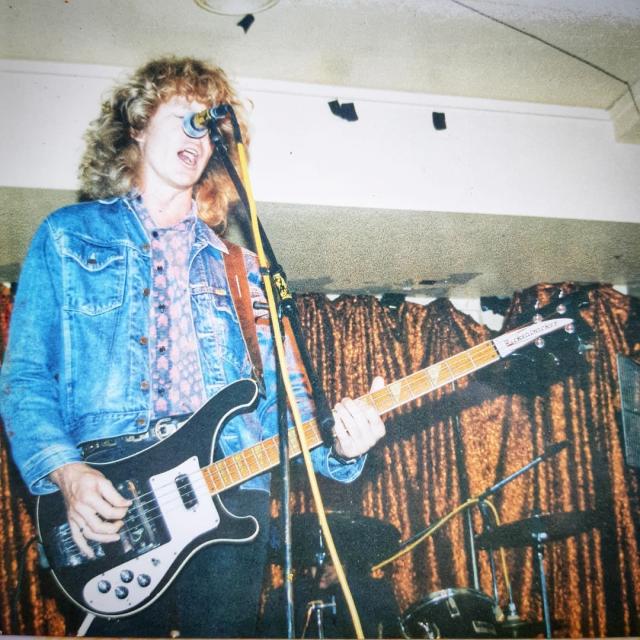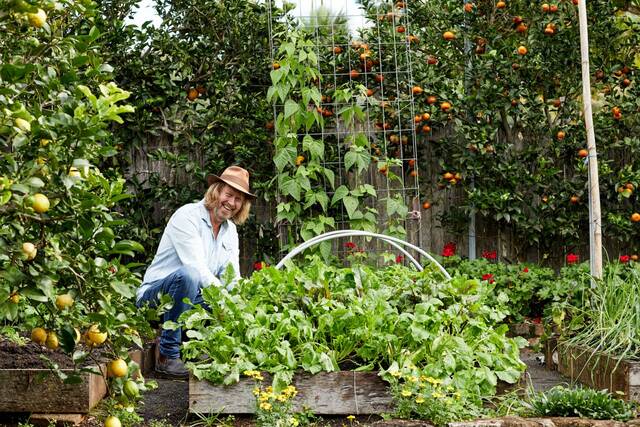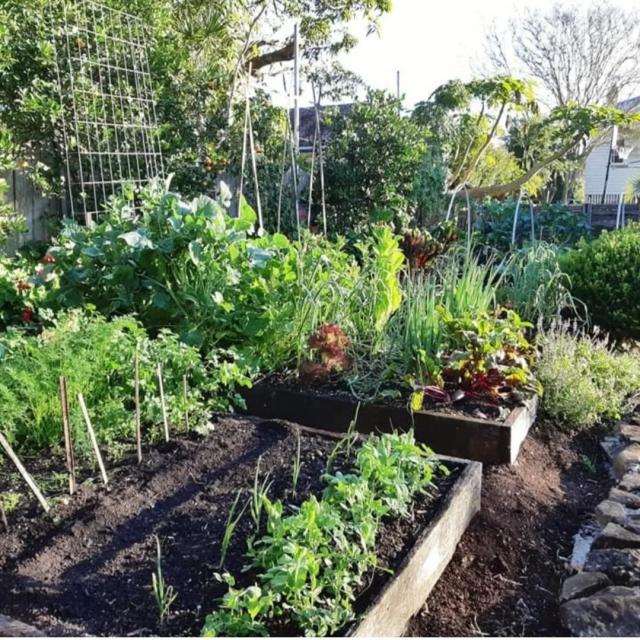The Queensland Garden Expo has shown tremendous growth in its 40-year history. Yet gardening guru Phil Dudman has also experienced some major changes, as ERLE LEVEY found when he sat down to talk with him.
“I fell in love head over heels with gardening and it’s been a great lifestyle. A daily practice really. The more you do, the more you have to do … it’s creative.”
Forty years ago, Bob Hawke was two years into his first term as Prime Minister of Australia; Neighbours premiered on the Seven Network; Back to the Future screened in cinemas; and the first version of Microsoft Windows was released.
Careless Whisper by Wham and Madonna’s Like a Virgin were topping the charts; the first mobile phone call was made in the UK; and the average median house price in Brisbane was $61,550.
And a young Phil Dudman was jamming with his band The Pressman at Smithy’s, a sweaty rehearsal studio near Roma Street in Brisbane.
It was also the start of what has grown to become the Queensland Garden Expo.
The 40th celebration will bring an expanded four-day gardening extravaganza to Nambour Showgrounds from 4-7 July.
There will be celebrations to recognise the pivotal role of exhibitors since the Expo started in 1985.
The seven-hectare immersive gardening experience will feature Australia’s largest gardening speaker program including crowd favourites such as Costa Georgiadis, Sophie Thomson and Jerry Coleby-Williams.
A popular speaker at the Expo for more than 20 years has been Phil Dudman.
Yet in a previous incarnation, the Garden Guru fronted a noisy ’80s grunge rock band.
Phil Dudman and The Pressmen started in Brisbane and made the journey to Sydney in search of fame and fortune.
After playing drums initially Phil took on the bass as he wanted to be out the front.
“We moved to Sydney in the late ’80s and played in inner-city pubs. That sort of finished late ’90s and at that stage I’d met my wife Melissa in Sydney.
“She was going overseas and asked: ’Are you coming?’
“I thought I better go.’’
The eventual drummer in the band was a fair-dinkum horticulturist, who loved natives and food, Phil said.
They had moved to Sydney for the band but he couldn’t stand the city and would take everyone on bush walks.
“Coming back to Australia after travelling through South East Asia, Europe and North Africa, gardening just hit me.
“I realised I had to start getting serious, after having studied architecture and business.
“Everything fell into place. Everything started happening.
“I fell in love head over heels with gardening and it’s been a great lifestyle. A daily practice really.
“The more you do, the more you have to do … it’s creative.
“You are always thinking and dreaming about things around nature. It’s a matter of keep working and being interactive with nature.
“Create something that can be shared, with family, friends or wildlife … it’s ever-changing and evolving.
“Food is your life. When you eat from your garden you know what you are getting – it’s fresh, it’s nutritious.’’
That’s when Phil mentioned the term “blue zones” to me.
It was first coined by Dan Buettner, a National Geographic Explorer and journalist, during an exploratory project he led in 2004.
After an expedition to Okinawa, Japan, in 2000 to investigate the longevity there, he set out with a team of scientists and demographers to explore other regions of the world with reportedly high longevity.
They were in search of communities where people not only lived longer but also enjoyed a high quality of life in their old age.
On the journey they identified five regions that stood out for their extraordinary longevity and vitality.
The five original blue zones – the places in the world with the healthiest, longest-living populations – include Okinawa, Japan; Sardinia, Italy; Nicoya, Costa Rica; Ikaria, Greece; and Loma Linda, California.
“A common thing across the blue zones of the world is diet,’’ Phil said, “but lifestyle too.
“Gardening plays a big part in our physical and mental health. It gives hope and an investment in the future.
“You are always wanting to plant things and see how they go.
“Plants play a big part in our lives … whether you are a gardener or not. Imagine if you cannot see any plants outside.
“I have the utmost respect for everyone who puts a plant in the ground. Not just as a personal thing but for everyone else.
“There is a bit of gardening in everyone … and the ability to respond to plants.
“We can all garden, we can all respond to plants, we can all spend time with them.
“People look around their garden, and the feeling of growth doesn’t stop.
“I’m looking forward to Nambour in July, and spring having already sprung.’’
Living in Lismore on the New South Wales North Coast, Phil reiterated the importance of strong communities after the challenges the city and surrounds had faced.
“Lismore has been a proper disaster zone. Together with the Covid pandemic we had two major floods. One was a record 2m higher than expected and they were a month apart.
“The recovery is slow because of the depth of damage and the fact it was so widespread.
“Lismore was the poster child but the flooding was widespread … even in Queensland.
“Businesses in Lismore are back trading, the community has come back to life … but that’s because of a resilience driven by the community.
“The best things are coming from the people. They were pulling people from houses in the middle of night. There were boats right up and down the main street.
“There is something very special about this community here. There are people wanting to leave but it’s such a special place. Gympie people can relate to it.
“It’s a flood town – this was especially bad after getting two in the space of a month. That left some permanent scares.’’
The highest flood on record in Lismore was on 28 February, 2022, where the flood level reached 14.4m.
“It’s a very supportive community … people working together, neighbours looking out for each other. That’s heartening.
“There are some hard workers doing incredible things for no recognition. Their dedication blows me away.
“Gardening has been a great way of overcoming such challenges – the sharing of food, sharing ideas.
“We’ve had some good things here. Fellow gardener Kate Wall from Brisbane approached me and while they had flooding there, a group was propagating plants, baking cakes, and coming down to put on events for the gardeners.
“It was held at the university and was a great day of sharing, plant swapping, sharing stories. Some of those stories were heartbreaking.
“The response was so wonderful and something I will never forget.
“So many ideas on how to bring life back to a garden … and their own lives. I will forever be grateful for what they did.’’
As for Covid, that hit Australia four years ago, the question remains: Have we forgotten the impact and the lessons learned?
“The big thing was gardeners got through it pretty well,’’ Phil said.
“A lot have gone back to pre-Covid ways but there are still people moving to regional towns and rural areas for lifestyle and well-being.
“That was extraordinary with lockdowns, especially the capital cities.
“The rapid changes in the day-to-day liberties of people yet northern Australia fared better because of the sunlight, fresh air and lifestyle.
“People knuckled down and got on with gardening.
“It goes to show how people, deep down, think about gardening and plants – the access to good food.
“A lot was the part-time, rare or never-garden people … good gardeners had already planned for such events.
“They will always be more resilient. They have their basic needs sorted out.
“In situations such as flood and Covid, when things were serious … it was not simply a matter of going to the shops. It was a reminder of the need to have such important skills.’’
The thing is don’t wait for these events to happen again, Phil reminds me. It’s important to get your gardening skills up.
Even the most experienced gardeners have things that go wrong.
“Don’t be disheartened, it will work out,’’ he said.
“Go to events such as the Expo, be inspired, listen to experts talking about fruit trees, native plants, flowers … most have been doing it for a long time.
“You get such experience with more than 160 lectures in four days. If you are wanting to kick-start a gardening lifestyle overnight, buy a four-day ticket.
“Gardening comes from a place of passion. Sometimes there’s a bit of risk. Yet you don’t achieve anything if you don’t try.
“The first step is the biggest.
“Gardening has been good as families face rising costs of living. And if they are not happy with the service being offered by supermarkets, keep driving past.
“Some of what is wrong with Australia’s retail system has been exposed. We need to utilise farmers’ markets more – the trouble is many have had their produce rejected because it does not present as perfect.
“Then there is the pricing, it kills business. It’s better for farmers to sell direct to the public rather than be priced out of it.
“Farmers deserve to make a living. They are heroes. They are so important to us.
“Markets can be such a better way to shop. People love the outing. It’s a unique environment.
“It’s good to see more more people coming on board because we need that kind of thinking and, you know, even the entrepreneurial approach to make our local food systems more resilient … that in itself offers some kind of level of food security.’’
Phil’s shift to gardening came on a Greyhound bus from Sydney back to Brisbane.
“I was thinking, what the hell am I going to do now?
“It was like a flash and it came out of the blue and it was horticulture. We arrived in Brisbane and I booked into an Associate Diploma in Horticulture at Grovely TAFE, got a part time job through my landlord who then put me onto a boutique nursery where I worked as well.
“I bought a ute and started my own gardening thing while I was studying. I soaked it all up.
“First job out of TAFE was at Hayman Island resort as assistant landscape manager.’’
Since then he’s been on a life-long pilgrimage in search of gardening wisdom.
Today, he is a horticulturalist, landscape designer and garden writer, with a passion for growing organic food.
He first combined his love of gardening and radio in 2001 when he presented a weekly gardening program on community radio.
Soon after this, he was commissioned by the ABC’s Regional Production Fund to produce The Garden Guru Files – a two-minute gardening tip that is aired nationally on the ABC Local Radio Network. He won the 2004 Australian Horticultural Media ’Laurel Award’ for the Best Gardening Radio Program for the series.
He is very positive about the Queensland Garden Expo’s switch to a four-day event this year.
“I go to a lot of events and the Expo is just like a gardener’s jamboree or pilgrimage, there are people from all over the place.
“As well as those on the Sunshine Coast, big bunches of people are happy to come up from Brisbane and Ipswich.
“There are even busloads from distant places such as where I live down in Lismore. A garden club will go up, spend a couple of days.
“People from Sydney and Melbourne ask me, what is it about the Queensland Garden Expo, what’s the secret?
“It’s pure gardening. Get in there with the compost, plant vegies, flowers and natives.
“Gardeners are such an optimistic mob. We can spend the year listening to negativity and that can mess with your mind.
“Now think Nambour, mid winter, where it’s sunny, warm and packed with people full of hope, looking to plant something and hope it will grow.
“That’s why gardeners live so long. It keeps you going. It gets you up in morning and keeps you going all day. It’s just a joy.
“For so many people its a way of life. A blueprint for living – a healthy and happy life.
“I’m not the only one. Get to Nambour and the people are joyous, there are smiles right across their faces.
“There’s always time to stop and chat. It’s a lovely step out of the everyday.’’
FAST FACTS
2024 Queensland Garden Expo: Four day event from 4-7 July;
Nambour Showgrounds;
40,000-plus attendees;
More than 7ha of gardening inspiration;
360-plus exhibitors and displays, including 55 nurseries;
150-plus free lectures and demonstrations;
Eight live speaker stages;
50,000 plants for sale each day.

